Social Media Hashtags: #DailyLines, #InHonorOfMemorialDay #AndAllThoseWhoServeTheirCountries, #WRITTENInMyOwnHEARTSBlood, #TwoWarriors
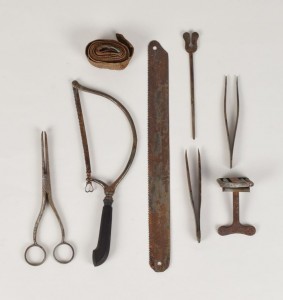 THE FIRST SHOT took them by surprise, a muffled boom from the cider orchard and a slow roll of white smoke. They didn’t run, but they stiffened, looking to him for direction. Jamie said to those near him, “Good lads,” then raised his voice.
THE FIRST SHOT took them by surprise, a muffled boom from the cider orchard and a slow roll of white smoke. They didn’t run, but they stiffened, looking to him for direction. Jamie said to those near him, “Good lads,” then raised his voice.
“To my left, now! Mr. Craddock, Reverend Woodsworth—circle them; come into the orchard from behind. The rest—scatter to the right and fire as ye can—” The second crash drowned his words, and Craddock jerked like a puppet with his strings cut and dropped to the ground, blood spraying from the blackened hole in his chest. Jamie’s horse shied violently, nearly unseating him.
“Go with the reverend!” he shouted at Craddock’s men, who stood there drop-jawed, staring at their captain’s body. “Go now!”
One of the men shook himself, grabbed the sleeve of another, pulled him away, and then they all began to move as a body. Woodsworth, bless him, raised his musket overhead and roared, “To me! Follow me!“ and broke into the stork-legged shamble that passed with him for running—but they followed him.
The gelding had settled but was moving uneasily. He was—supposedly—used to the sound of guns, but he didn’t like the strong smell of blood. Jamie didn’t like it, either.
“Shouldn’t we… bury Mr. Craddock?”a timid voice suggested behind him.
“He’s not dead, lackbrain!”
Jamie glanced down. He wasn’t—but it wouldn’t be more than a few seconds longer.
“Go with God, man,” he said quietly. Craddock didn’t blink; his eyes were fixed on the sky, not yet dull but sightless.
“Go wi’ your fellows,” he said to the two lingerers, then saw that they were Craddock’s two sons, maybe thirteen and fourteen, white-faced and staring as sheep.
“Say farewell to him,” he said abruptly. “He’ll still hear ye. Then… go.” He thought for a moment to send them to La Fayette, but they’d be no safer there. “Run!”
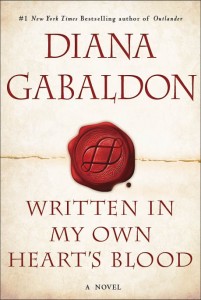 They ran—they were a deal safer running—and with a gesture to Lieutenants Orden and Bixby, he wheeled his horse to the right, following Guthrie’s company. The cannon were firing more regularly from the orchard. He saw a ball bounce past, ten feet away, and the air was thickening with smoke. He could still smell Craddock’s blood.
They ran—they were a deal safer running—and with a gesture to Lieutenants Orden and Bixby, he wheeled his horse to the right, following Guthrie’s company. The cannon were firing more regularly from the orchard. He saw a ball bounce past, ten feet away, and the air was thickening with smoke. He could still smell Craddock’s blood.
He found Captain Moxley and sent him with a full company to look at the farmhouse on the far side of the orchard.
“At a distance, mind. I want to know if the redcoats are in it or if the family’s still there. If the family’s there, surround the house; go inside if they’ll let ye, but don’t force your way. If there are soldiers inside and they come out after you, engage them and take the house if ye think ye can. If they stay inside, don’t stir them up; send someone back to tell me. I’ll be at the back o’ the orchard; the north side.”
Guthrie was waiting for him, the men lying flat in the long grass behind the orchard. He left the two lieutenants with his horse, which he tied to a fence rail well out of range of the orchard, and scrambled along to the company, keeping low. He dropped to his belly by Bob Guthrie.
“I need to know where the cannon are—exactly where they are, and how many. Send three or four men in from different directions, goin’ canny—ye know what I mean? Aye. They’re not to do anything; see what they can and come out again, fast.”
Guthrie was panting like a dog, stubbled face awash with sweat, but he grinned and nodded and wormed his way off through the grass. The meadow was dry, brown and brittle in the summer heat; Jamie’s stockings prickled with foxtails, and the warm sharp scent of ripe hay was stronger than that of black powder.
He gulped water from his canteen; it was nearly empty. It wasn’t yet noon, but the sun was coming down on them like a flatiron. He turned to tell one of the lieutenants who’d been following him to go and find the nearest water, but nothing moved in the grass behind him save hundreds of grasshoppers, whirring up like sparks. Gritting his teeth against the stiffness in his knees, he scrambled up onto hands and feet and scuttled back toward his horse.
Orden was lying ten feet away, shot through one eye. Jamie froze for an instant, and something whirred close past his cheek. It might be a grasshopper and it might not. He was flat to the earth beside the dead lieutenant, heart pounding in his ears before the thought had fully formed.
Guthrie. He daren’t raise his head to call out—but had to. He got his feet under him as best he could, shot out of the grass, and ran like a rabbit, to and fro, zigging away from the orchard as best he could while still going in the direction he’d sent Guthrie.
He could hear the shots now: more than one sniper in the orchard, protecting the cannon, and the sound was the flat crack! of a rifle. Jaegers? He flung himself down and crawled madly, now shouting for Guthrie.
“Here, sir!” The man popped up suddenly beside him like a groundhog, and Jamie seized Guthrie’s sleeve, pulling him back down.
“Get… your men back.” He gulped air, chest heaving. “Shooting—from the orchard. This side. They’ll be picked off.”
Guthrie was staring at him, mouth half open.
“Get them!”
Shaken out of his shock, Guthrie nodded like a puppet and started to rise. Jamie grabbed him by the ankle and jerked him flat, pressed him down with a hand on his back.
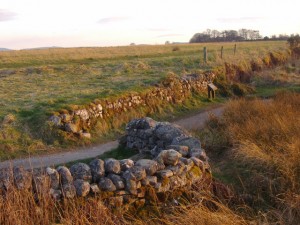 “Don’t… stand up.” His breathing was slowing and he managed to speak calmly. “We’re still in range here. Get your men and retire with your company—back to the ridgeline. Join Captain Moxley; tell him to come round and join me…” His mind went blank for a moment, trying to think of some reasonable place for a rendezvous. “South of the farmhouse. With Woodbine’s company.” He took his hand off Guthrie.
“Don’t… stand up.” His breathing was slowing and he managed to speak calmly. “We’re still in range here. Get your men and retire with your company—back to the ridgeline. Join Captain Moxley; tell him to come round and join me…” His mind went blank for a moment, trying to think of some reasonable place for a rendezvous. “South of the farmhouse. With Woodbine’s company.” He took his hand off Guthrie.
“Aye, sir.” The man scuffed up onto hands and knees, reaching for the hat that had fallen off.
He glanced back at Jamie, eyes full of earnest concern.
“Are you hit bad, sir?”
“Hit?”
“There’s blood all down your face, sir.”
“It’s nothing. Go!”
Guthrie swallowed, nodded, wiped his face on his sleeve, and made off through the grass, as fast as he could go. Jamie put a hand to his own face, belatedly aware of a slight sting across his cheekbone. Sure enough, his fingers came away bloody. Not a grasshopper, then.
He wiped his fingers on the skirt of his coat and noticed mechanically that the seam of the sleeve had burst at the shoulder, showing the white shirt beneath. He rose a little, cautious, looking round for Bixby, but there was no sign of him. Maybe dead in the long grass, too; maybe not. With luck, he’d seen what was happening and run back to warn the companies coming up. The horse was still where he’d left it, thank God, tethered to a fence, fifty yards away.
He hesitated for a moment, but there wasn’t time to lose in looking for Bixby. Woodsworth and his two companies would be coming round the orchard in a few minutes, and right into range of the German rifles. He popped up and ran.
Something tugged at his coat, but he didn’t stop, and reached his horse, gasping for air.
“Tiugainn!” he said, swinging up into the saddle. He turned away from the orchard and galloped through a potato field, though it bruised his farmer’s heart to see what the armies’ passing had done to it already.
CLAIRE
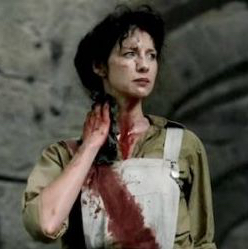 I DON’T KNOW when physicians began calling it “the Golden Hour,” but surely every battlefield medic from the time of the Iliad onward knows about it. From the time of an accident or injury that isn’t immediately fatal, the victim’s chances of living are best if he receives treatment within an hour of sustaining the injury. After that, shock, continued loss of blood, debility due to pain… the chance of saving a patient goes sharply downhill.
I DON’T KNOW when physicians began calling it “the Golden Hour,” but surely every battlefield medic from the time of the Iliad onward knows about it. From the time of an accident or injury that isn’t immediately fatal, the victim’s chances of living are best if he receives treatment within an hour of sustaining the injury. After that, shock, continued loss of blood, debility due to pain… the chance of saving a patient goes sharply downhill.
Add in blazing temperatures, lack of water, and the stress of running full out through fields and woods, wearing wool homespun and carrying heavy weapons, inhaling powder smoke, and trying either to kill someone or avoid being killed, just prior to being injured, and I rather thought we were looking at a Golden fifteen minutes or so.
Given also the fact that the wounded were having to be carried or to walk—probably more than a mile—to a place where they could find assistance… I supposed we were doing well to save as many as we were. If only temporarily, I added grimly to myself, hearing the screaming from inside the church.
“What’s your name, dear?” I said to the young man in front of me. He couldn’t be more than seventeen and was precious near to bleeding to death. A bullet had gone through the meat of his upper arm, which would normally be a fortuitous location for a wound. Unfortunately, in this instance the ball had passed through the underside of the arm and nicked the brachial artery, which had been spurting blood in a slow but earnest manner until I’d taken a death grip on his arm.
“Private Adams, ma’am,” he replied, though his lips were white and he was shaking. “Billy, they call me,” he added politely.
“Pleased to meet you, Billy,” I said. “And you, sir…?” For he’d been brought in staggering, leaning on another boy of about his own age—and nearly as white-faced, though I thought he wasn’t hurt.
“Horatio Wilkinson, ma’am,” he said, dipping his head in an awkward bow—the best he could manage while holding his friend upright.
“Lovely, Horatio,” I said. “I’ve got him now. Would you pour him out a little water, with a splash of brandy in it? Just there.” I nodded at the packing case I was using for a table, on which one of my brown bottles marked POISON stood, along with a canteen full of water and wooden cups. “And as soon as he’s drunk it, give him that leather strip to bite down on.”
I’d have told Horatio to have a tot, too, save that there were only two cups, and the second one was mine. I was sipping water steadily—my bodice was soaked and clung to me like the membrane inside an eggshell, and sweat ran steadily down my legs—and I didn’t want to be sharing the germs of assorted soldiers who didn’t brush their teeth regularly.
Still, I might have to tell him to take a quick gulp direct from the brandy bottle; someone was going to have to apply pressure to Billy Adams’s arm while I stitched his brachial artery, and Horatio Wilkinson didn’t presently look equal to the task.
“Would you—” I began, but I was holding a scalpel and a suture needle with a dangling ligature in my free hand, and the sight of these overcame young Mr. Wilkinson. His eyes rolled up in his head and he dropped, boneless, into the gravel.
“Wounded?” said a familiar voice behind me, and I turned my head to see Denzell Hunter looking down at Mr. Wilkinson. He was nearly as pale as Horatio and, with strands of hair come loose and clinging to his cheeks, very much the antithesis of his usual collected self.
“Fainted,” I said. “Can you—”
“They are idiots,” he said, so pale—with rage, I now realized—that he could barely speak. “Regimental surgeons, they call themselves! A good quarter of them have never seen a man wounded in battle before. And those who have are barely capable of anything in the way of treatment save the crudest amputation. A company of barbers would do better!”
“Can they stop bleeding?” I asked, taking his hand and wrapping it round my patient’s upper arm. He automatically pressed his thumb to thebrachial artery near the armpit, and the spurting that had started when I took my own hand away stopped again.
“Thank you,” I said.
“Not at all. Yes, most of them can do that,” he admitted, calming down just a little. “But they are so jealous of privilege—and so much affiliated with their own regiments—that some are letting a wounded man die because he is not one of theirs and his own regimental surgeon is otherwise occupied!”
“Scandalous,” I murmured, and, “Bite hard now, Private,” as I thrust the leather between his teeth and made a quick incision to enlarge the wound enough to find the end of the severed artery. He did bite, and made no more than a low grunting noise as the scalpel sliced into his flesh; perhaps he was sufficiently in shock that he didn’t feel it much—I hoped not.
“We haven’t a lot of choice,” I observed, glancing toward the big shade trees that edged the graveyard. Dottie was minding the victims of heatstroke, giving them water and—as time and buckets permitted—dousing them with it.
Rachel was in charge of depressed head fractures, abdominal wounds, and other serious wounds that couldn’t be treated by amputation or binding and splinting. In most cases, this amounted to nothing more than comforting them as they died, but she was a good, steady girl, who had seen a great many men die during the winter at Valley Forge; she didn’t shrink from the job.
“We have to let them—” I jerked my chin toward the church, my hands being occupied in holding Private Adams’s arm and ligating the severed vessel— “do what they’re able to do. Not that we could bloody stop them.”
“No.” Denny breathed out, let go of the arm as he saw I had the vessel tied off, and wiped his face on his coat. “No, we can’t. I just needed to express my anger where it wouldn’t cause more trouble.”
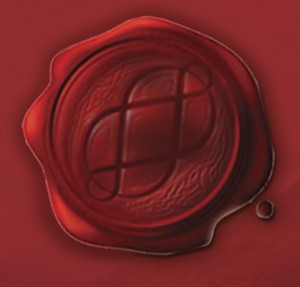 A SLEDGEHAMMER hit me in the side, making me jerk, the needle dropping from my hands. I didn’t feel myself fall but was lying on the ground, black and white spots flashing round me, a sense of intense numbness radiating from my right side. I smelled damp earth and warm grass and sycamore leaves, pungent and comforting. Shock, I thought dimly, and opened my mouth, but nothing but a dry click came out of my throat. What… The numbness of the impact began to lessen, and I realized that I had curled into a ball, my forearm pressed by reflex over my abdomen. I smelled burning, and fresh blood, very fresh. I’ve been shot, then.
A SLEDGEHAMMER hit me in the side, making me jerk, the needle dropping from my hands. I didn’t feel myself fall but was lying on the ground, black and white spots flashing round me, a sense of intense numbness radiating from my right side. I smelled damp earth and warm grass and sycamore leaves, pungent and comforting. Shock, I thought dimly, and opened my mouth, but nothing but a dry click came out of my throat. What… The numbness of the impact began to lessen, and I realized that I had curled into a ball, my forearm pressed by reflex over my abdomen. I smelled burning, and fresh blood, very fresh. I’ve been shot, then.
“Sassenach!” I heard Jamie’s bellow over the roaring in my ears. He sounded far off, but I heard the terror in his voice clearly. I wasn’t disturbed by it. I felt very calm.
“Sassenach!” The spots had coalesced. I was looking down a narrow tunnel of light and spinning shadow. At the end of it was the shocked face of Corporal Greenhow, the needle dangling by its thread from the half-sewn gash in his forehead.
In honor of Memorial Day 2022, and all of those who serve their countries. This is an excerpt (aka “Daily Lines”) from my book, WRITTEN IN MY OWN HEART’S BLOOD.
Top image: A pair of surgical amputation kits used during the Revolutionary War by Dr. John Warren. The two kits, which feature gruesome implements such as rusted bone saws (for amputations) and bullet forceps, were used on wounded soldiers by Warren as he served with the Continental Army. Doctors had to provide their own surgical tools. Warren’s older brother was Dr. Joseph Warren, the celebrated American patriot whose death at the Battle of Bunker Hill served as an inspiration to soldiers throughout the conflict. These two medical kits were in the collection of Harvard Medical School for over 200 years until sold at auction to a private collector.
Center image: The Well of the Dead, Culloden Moor. The commander of the Clan Chattan regiment, Alexander McGillivray of Dunmaglass, and many other Jacobite soldiers died here after engaging the left wing of the Hanoverian army in the Battle of Culloden. From Wikipedia.
The image of Claire, portrayed by Caitriona Balfe in the Outlander TV series, is courtesy of Starz.
Posted on May 30, 2022 2:00 AM
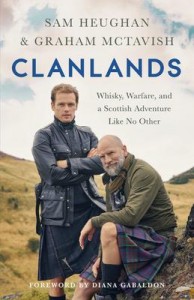 The Poisoned Pen, my hometown independent bookstore, asked me to share some special offers on books written by Sam Heughan and Graham MacTavish, two great guys and very talented actors. (And both are quite fetching in kilts. <g>)
The Poisoned Pen, my hometown independent bookstore, asked me to share some special offers on books written by Sam Heughan and Graham MacTavish, two great guys and very talented actors. (And both are quite fetching in kilts. <g>)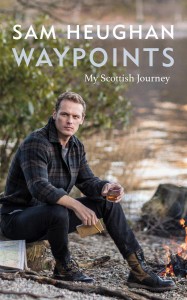 WAYPOINTS: My Scottish Journey by Sam Heughan (Radar, U.K., $60). This is Special Pricing for the U.K. edition signed by Sam in London on the title page and in Scottsdale by Diana on the title page, too. Click to purchase WAYPOINTS from the Pen.
WAYPOINTS: My Scottish Journey by Sam Heughan (Radar, U.K., $60). This is Special Pricing for the U.K. edition signed by Sam in London on the title page and in Scottsdale by Diana on the title page, too. Click to purchase WAYPOINTS from the Pen. The Pen has a few remaining copies of CLANLANDS: Whisky, Warfare, And An Adventure Like No Other by Sam Heughan and Graham MacTavish (Mobius publishing, $25). These are signed by Diana Gabaldon on the first page of her foreward to the book. Also includes a book plate with a facsimile of Sam Heughan and Graham McTavish’s signatures. A New York Times Number-One Bestseller! Click to purchase CLANLANDS from the Pen.
The Pen has a few remaining copies of CLANLANDS: Whisky, Warfare, And An Adventure Like No Other by Sam Heughan and Graham MacTavish (Mobius publishing, $25). These are signed by Diana Gabaldon on the first page of her foreward to the book. Also includes a book plate with a facsimile of Sam Heughan and Graham McTavish’s signatures. A New York Times Number-One Bestseller! Click to purchase CLANLANDS from the Pen.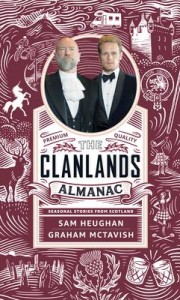 And still available: CLANLANDS ALMANAC: Seasonal Stories From Scotland by Graham MacTavish and Sam Heughan (Mobius $19.99). This hardcover edition (red cover) is signed by Diana and includes a book plate with a facsimile of signatures of Sam and Graham. Click to purchase the CLANLANDS ALMANAC from the Pen.
And still available: CLANLANDS ALMANAC: Seasonal Stories From Scotland by Graham MacTavish and Sam Heughan (Mobius $19.99). This hardcover edition (red cover) is signed by Diana and includes a book plate with a facsimile of signatures of Sam and Graham. Click to purchase the CLANLANDS ALMANAC from the Pen.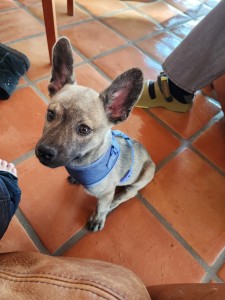
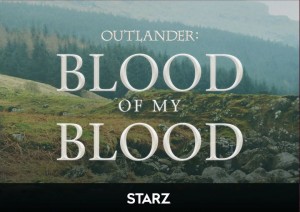
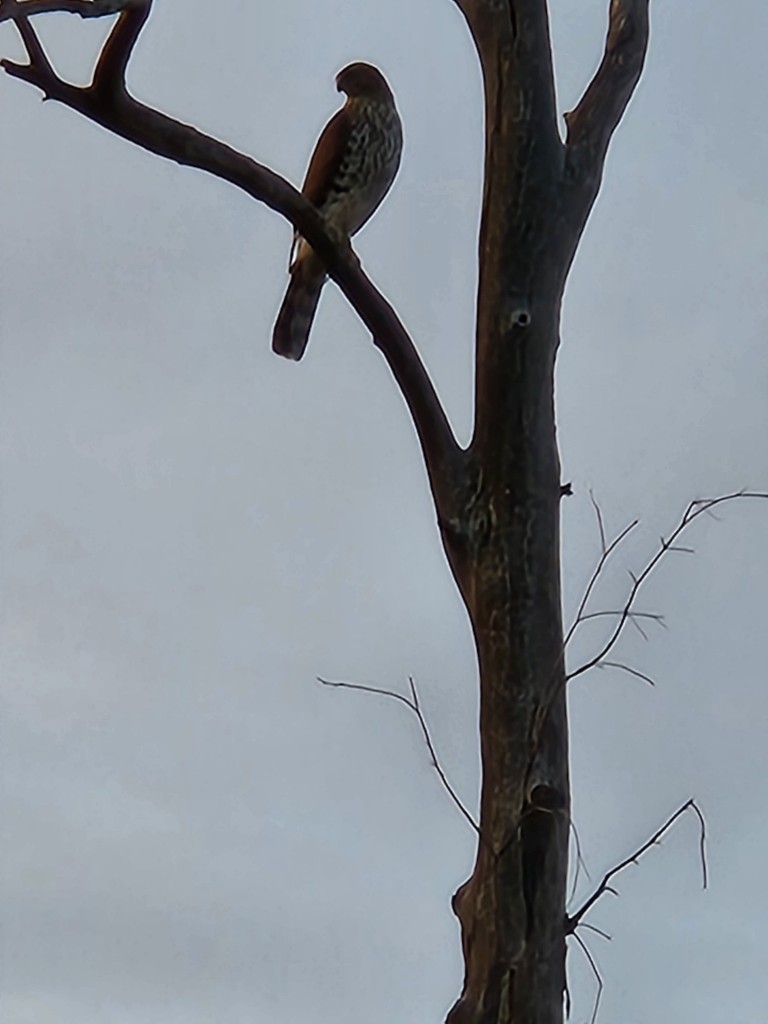
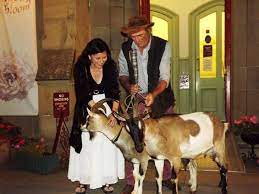
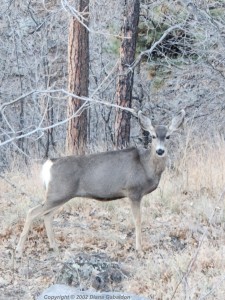
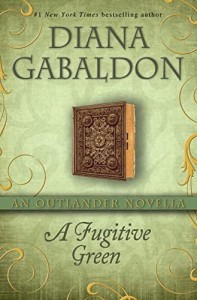
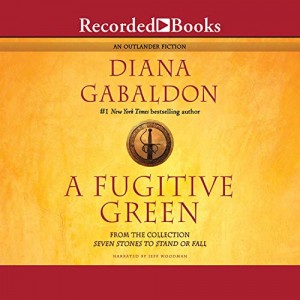
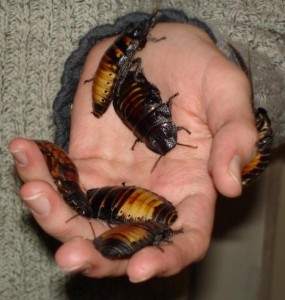
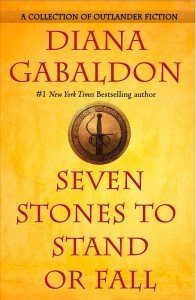
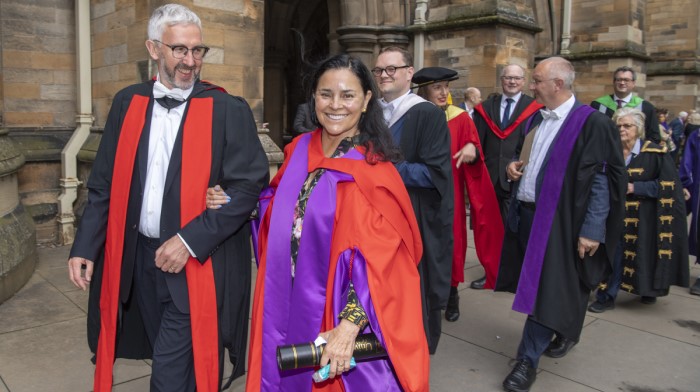
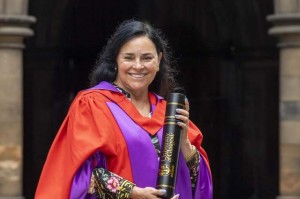
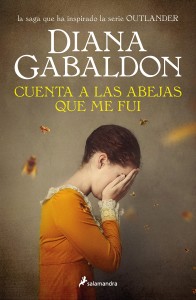
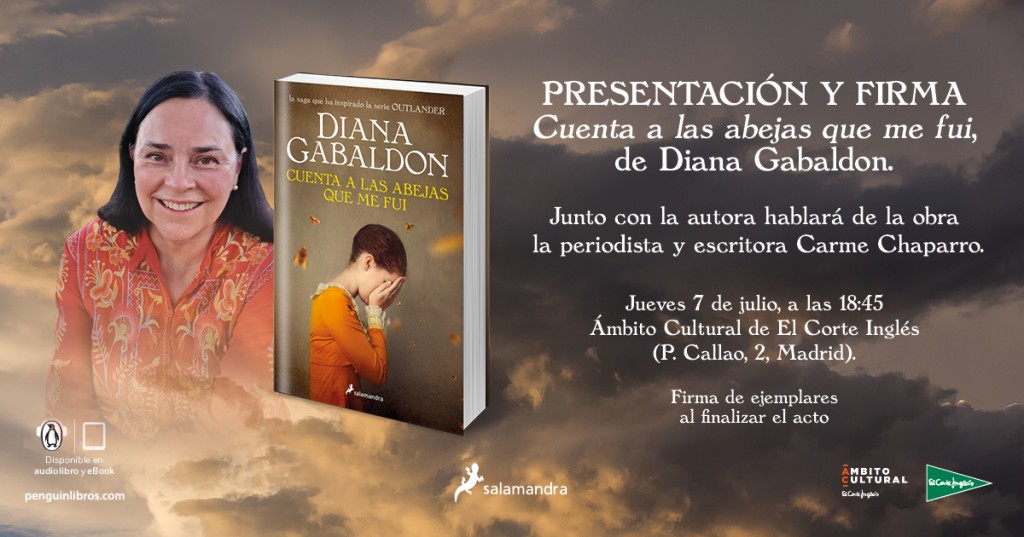



 I DON’T KNOW when physicians began calling it “the Golden Hour,” but surely every battlefield medic from the time of the Iliad onward knows about it. From the time of an accident or injury that isn’t immediately fatal, the victim’s chances of living are best if he receives treatment within an hour of sustaining the injury. After that, shock, continued loss of blood, debility due to pain… the chance of saving a patient goes sharply downhill.
I DON’T KNOW when physicians began calling it “the Golden Hour,” but surely every battlefield medic from the time of the Iliad onward knows about it. From the time of an accident or injury that isn’t immediately fatal, the victim’s chances of living are best if he receives treatment within an hour of sustaining the injury. After that, shock, continued loss of blood, debility due to pain… the chance of saving a patient goes sharply downhill.